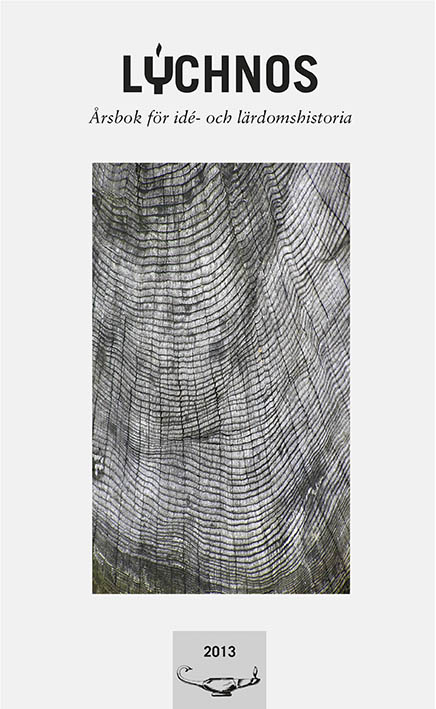Syntetisk bensin
Ett nobelpris, Ingenjörsvetenskapsakademin och sökandet efter ”inhemskt motorbränsle” under 1920- och 1930-talet
Abstract
In 1931 Carl Bosch and Friedrich Bergius were awarded the Nobel Prize in chemistry “by reason of their services in originating and developing chemical high-pressure methods”. One of their achievements, according to the Nobel Committee, was the manufacture of oil and liquid fuels from solid coal. The process had been developed by Bergius and improved by Bosch, and then became the basis for German synthesis of petroleum in the 1930’s and during the Second World War. The nomination of Bosch and Bergius came primarily from a group of prominent Swedish scientists and engineers. It was, as expressed in the presentation speech at the award ceremony, “the possibility of obtaining oils from timber by high pressure processing” which was of particular importance. The center of this interest was the Swedish Academy of engineering sciences, founded in 1919. Fuel matters dominated its activities from the very beginning. The first investigations supported by the Academy concerned the possibilities to replace imported coal by domestic peat or fuels from alum shale. Towards the end of the 1920’s the problem gradually changed from coal to imported oil. Motorized communications had made modern society dependent on gasoline and it was generally supposed that in a foreseeable future the oil reserves would be exhausted. The problem was further accentuated by the fear that the recent world war might be followed by a second great war. This concern was not unique for Sweden. In many European states the word of the day was autarky, self-sufficiency, not the least by developing what sometimes was called “a national fuel”. In Sweden, at the beginning of the 20th century, one product had been developed which could replace petrol: sulphite alcohol produced by fermenting waste lye from pulp mills. But that was not enough. Perhaps other waste products could offer a solution to the fuel problem? The Academy of engineering sciences proposed that it should be investigated whether it was possible to produce oil from domestic raw materials according to the method of Bergius. The Academy reached an agreement with Bergius to use his equipment for a medium sized installation, the parliament granted money for research, and a laboratory building was erected in Stockholm. The experiments indicated that it was possible, but costly, to produce oil from wood. Then came the outbreak of WWII. Oil supply was cut off. There was no time for experiments. Motor traffic had to rely on other fuels – sulphite alcohol, wood gas and shale oil. The Swedish interest in hydrogenation, with the Nobel Prize in chemistry in 1931 as a climax, was fruitless. It can be seen as a parenthesis in the search for alternatives to oil as fuel. But it was a temporary parenthesis. Today we can notice the same concern over petroleum’s availability, reinforced by fears of climate change and the need to reduce the use of fossil fuels. And once again, in Sweden, it is the forest and waste products from its industries, which seem to offer the most promising possibilities to produce liquid fuels.
Downloads
Publicerad
Nummer
Sektion
Licens
This work is licensed under a Creative Commons Attribution 4.0 International License. The copyright for the work published in Lychnos remains with the authors.


